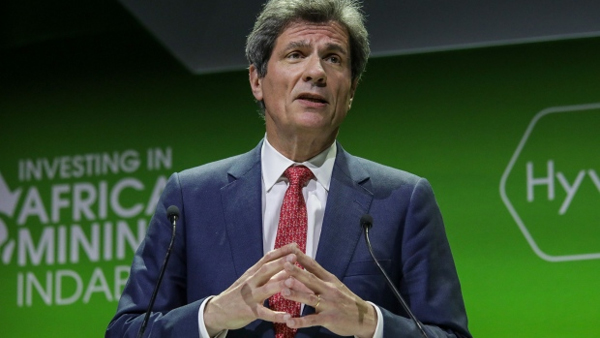
Mike Cohen, Bloomberg News
CAPE TOWN
EnergiesNet.com 05 12 2022
The American government’s efforts to help Africa address crippling electricity shortages will increasingly focus on bolstering the continent’s output of green energy and helping it attract the required investment, a top State Department official said.
“Energy policy that warms our planet cannot continue,” US Under Secretary for Economic Growth, Energy and the Environment Jose W. Fernandez told the Investing in African Mining Indaba conference in Cape Town on Tuesday. “We also know that moving to a clean energy transition will not happen overnight. In some cases where carbon neutral options are unavailable, engagement on natural gas projects, abated to the fullest degree possible, may be necessary.”
About 600 million people across sub-Saharan Africa, or about half the population, have no access to electricity, and consultant Wood Mackenzie Ltd. estimates $350 billion will have to be invested in generation capacity to supply all of them with power. The US identified improving the electricity supply as one of its top foreign policy priorities in the world’s poorest continent almost a decade ago.
Its Power Africa initiative, introduced by President Barack Obama’s administration, has supported the development of more than 5,700 megawatts of new generation capacity since 2013. It’s targeting adding more than 30,000 megawatts of output by 2030, sufficient to power 60 million homes and business.
Among the projects being supported by the initiative is the Mega Solar initiative in Namibia and Botswana, which will facilitate the procurement of as many as 5,000 megawatts of renewable energy, according to Fernandez. As Southern Africa’s largest solar power-generation program, it will power millions of homes and generate thousands of jobs, while preventing an estimated 3.5 million tons of greenhouse gas emissions annually, he said.
Power Africa last month also announced the formation of a new public and private partnership that will seek to electrify an additional 10,000 health care facilities in sub-Saharan Africa within the next decade, a project that’s aimed at helping them deliver better services and enhance their response to the coronavirus pandemic.
Another initiative known as Prosper Africa, which was announced by President Donald Trump and seeks to forge ties between American and African businesses, is also encouraging a move toward cleaner energy. It has helped facilitate a $2.1 billion solar project in Angola led by U.S. developer Sun Africa, and a $3.5 billion refinery that will be built by a consortium led by Quanten LLC and produce 100,000 barrels of refined fuel products a day that conform to the Euro 5 emissions standard, Fernandez said.
The US International Development Finance Corporation has meanwhile provided backing for utility-scale wind, solar and biomass projects in Kenya, Ivory Coast, Senegal and the Central African Republic. The American government, along with the U.K., Germany, France and European Union, is also backing a planned $8.5 billion climate finance deal for South Africa to help it cut its use of coal.
Read more: South Africa Seeks to Make Climate Finance Deal Global Benchmark
Fernandez cautioned that government initiatives would be insufficient to address Africa’s energy needs and businesses will have to step in.
“Given the kinds of investments that are needed, the private sector has to play a bigger role,” he said in an interview. “For countries to attract the private sector investment, they will need regulatory reform, so it’s a virtuous cycle.”
bloomberg.com 05 11 2022







